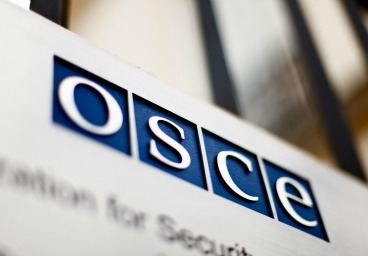Today, Congressman Alcee L. Hastings (D-FL), Chairman of the Commission on Security and Cooperation in Europe (U.S. Helsinki Commission), made the following remarks at a conference hosted by the Center for International Private Enterprise (CIPE) entitled Post-Conflict Reconstruction: Engaging Civil Society in Reform:
Thank you, John, and thank you for the opportunity to be here with you all today.
Helping a country stand on its own two feet after a debilitating conflict is a slow and difficult task. Not only must we tend to the physical reconstruction of buildings, homes and roads, but political institutions must often be re-constructed or created from scratch.
The social fabric must also heal.
President Kennedy said that, “Peace is a daily, a weekly, a monthly process, gradually changing opinions, slowly eroding old barriers, quietly building new structures.”
This is particularly true in the countries that are the subject of this conference, where internal conflict has been the rule not the exception and maintaining peace and building a future is something that happens not state to state but neighbor to neighbor.
I have just returned from a trip to Kosovo where I saw some fragile communities and met neighbors who are still living in suspicion and fear.
It is clear that Kosovo cannot fully recover from the conflict until its political status is resolved. I support the Ahtisaari plan as the best hope for the minorities in Kosovo and I think the best chance for Kosovo’s future.
I am convinced that stability in Kosovo is inextricably linked with the condition of Kosovo’s minorities. And clearly, more attention needs to be given to making conditions for minorities sustainable. These groups need to feel not only physically safe, but feel invested in their future in Kosovo. That includes the ability to make a living, have a home, and raise a family. Giving minorities the protections they need, will contribute to the long-term stability and development of Kosovo.
One specific area I learned about on my trip was the need for Kosovar institutions to do more in terms of property restitution and the development of a property rights system. There is work that can be done now, and the resolution of Kosovo’s status will also help in this area.
I want to particularly mention some great work that CIPE and its local partners are doing in Kosovo. One of their partners has focused on working with local municipalities in Kosovo, building their capacity for local economic development. By facilitating public-private partnerships on the local level, they are engaging the government and the business community in development of legislation to spur employment, investment, and locally-driven growth.
Before I wrap up, let me just speak for a minute about Bosnia. I’ve been to Bosnia six times—both during and immediately after the war. When I traveled there the pictures that kept traveling through my mind were the beautiful scenes from the 1984 Sarajevo Olympics that I watched on television.
And when I toured Bosnia it didn’t seem possible that this devastated landscape was once a vibrant international city, and that an Olympic stadium could be the site of a graveyard.
In the last 10 years Bosnia has made tremendous progress in restoring its former charm. And I know that is due to the hard work of not just the international community but of the Bosnians themselves. Despite the odds, they put themselves on a path toward not only lasting peace but toward European integration and we all want to see a full commitment to practical reforms in Bosnia that keep them on this path. What I hope this conference today will help address is how Bosnia can maintain this momentum by using increased domestic resources to replace the reduced international financial support.
I want to wish you well as you discuss Kosovo and Bosnia as well as Afghanistan and Iraq. The future peace of these regions is dependent not just on sufficient international aid, but in ensuring local civil society is active and invested in the future of their own country.
I commend the groups represented here today who are on the front lines of this effort. Thank you for your work and I wish you a successful conference today.
About CIPE: is a non-profit affiliate of the U.S. Chamber of Commerce and one of the four core institutes of the National Endowment for Democracy. CIPE has supported more than 1,000 local initiatives in over 100 developing countries, involving the private sector in policy advocacy and institutional reform, improving governance, and building understanding of market-based democratic systems. www.cipe.org






